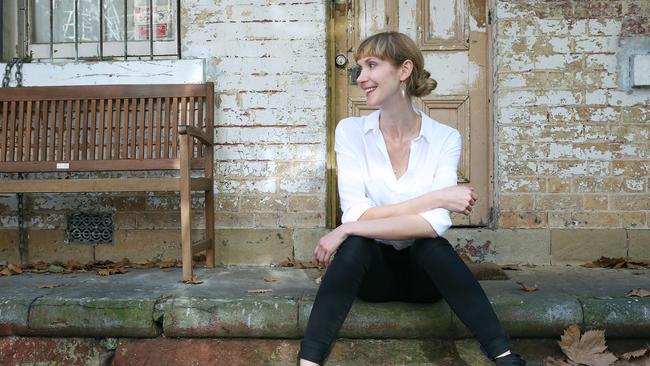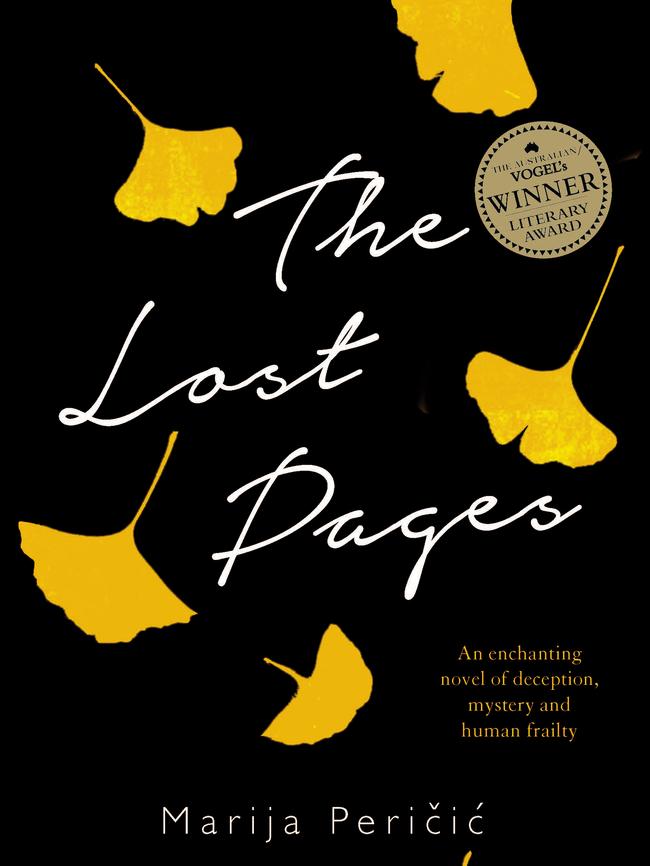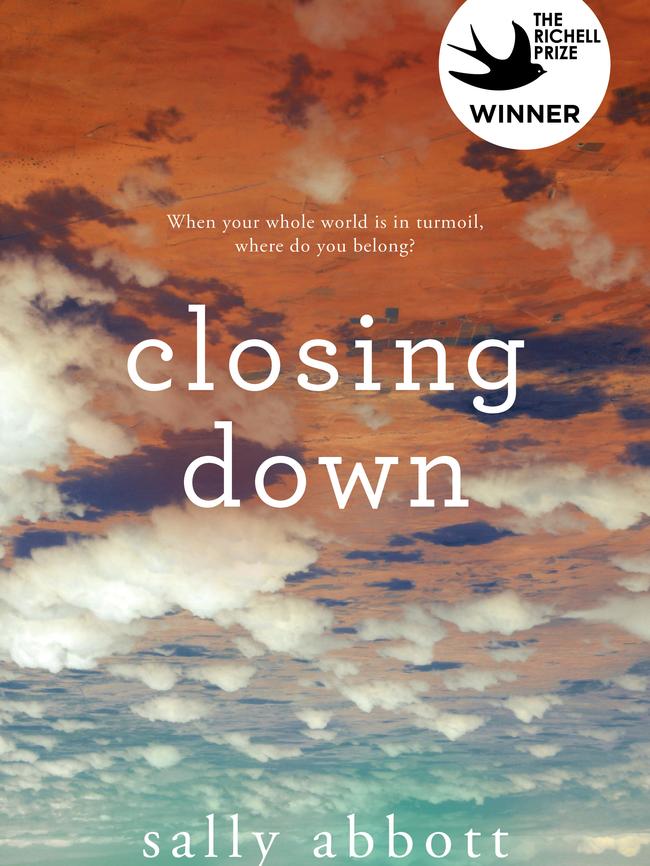Kafka’s voice prevails in The Australian/Vogel award winner
Marija Pericic has created a highly original story from the friendship between Franz Kafka and his editor Max Brod.

Now in its 37th year, The Australian/Vogel’s Literary Award has become an institution. Awarded to an unpublished manuscript by a writer under 35, it has helped launch the careers of authors such as Tim Winton, Kate Grenville, Andrew McGahan and Gillian Mears. It has delivered a literary scandal in the shape of Helen Darville/Demidenko. And it has offered a fascinating window to the transformation of Australian culture and society across the past four decades.
Although several recent winners have been highly original in their conception, there’s little doubt this year’s, Marija Pericic’s The Lost Pages, is strikingly so, taking the friendship between Franz Kafka and his friend and editor Max Brod and transforming it into a narrative that is deliberately Kafkaesque.

The story of the relationship between the two men is well known. The dying Kafka instructed Brod to burn unread “everything I leave behind me … in the way of diaries, manuscripts, letters (my own and others’), sketches and so on”. Brod refused, later declaring Kafka “should have appointed another executor if he had been absolutely and finally determined that his instructions should stand”.
He instead sets about revising his friend’s remaining work, the publication of which cemented Kafka’s reputation as one of the geniuses of 20th-century literature.
Pericic’s novel does not so much insert itself into the relationship between the two men as reimagine it wholesale. Purporting to be a section of Brod’s memoir assembled from handwritten notes in exercise books, photographs and documents, it arrives garlanded with all the apparatus of scholarly study: editor’s notes and afterword, footnotes, inserted words and sentences where water damage has made the original illegible. It recounts the appearance of Kafka in Brod’s life and the consequent disorder and confusion that creates.
The version of events presented in the novel diverges from the accepted account in many respects (not least in chronology: although the novel begins in 1908, Pericic’s Kafka dies of tuberculosis within a year, not in 1924). Instead of friends, Brod and Kafka are rivals, Brod playing the part of Salieri (or at least Peter Shaffer’s Salieri) to Kafka’s Mozart, alternately astonished by Kafka’s brilliance and tormented by “the sick poison of jealousy, the panic of self-preservation”. Yet, despite his desire to rid himself of Kafka, Brod cannot. Instead he finds Kafka invading his world on every side, charming the woman Brod loves, fascinating Brod’s publisher, supplanting Brod in the mind of the reading public.
Along the way the notion of identity becomes increasingly indeterminate. An actor Brod hires to play the part of Franz at a party performs his part with exceptional skill, yet only a few weeks later, when Brod hires a different actor to play the same part, his second subterfuge goes unnoticed, those who met the first impostor failing to detect the presence of the second. Photos of Kafka referred to in the editorial apparatus resist definitive identification, Kafka’s identity mapping on to numerous potential subjects. Even Brod, with his twisted legs and spine, finds others becoming confused about his identity, mistaken not just for Franz but for his own dead brother.
Although Pericic writes with admirable clarity and considerable energy, at a line-by-line level the novel only intermittently captures the sheer strangeness of Kafka’s fiction, its aphoristic brilliance and peculiar combination of precision and indeterminacy. Yet despite that The Lost Pages is a strikingly assured and wonderfully original performance. For as Brod’s frustration and despair grow ever more intense the fascination with obsession and identity, doubling and impostors, acquires real charge, provoking larger questions about the nature of literary identity, fiction and fictionality, and finally — and most satisfyingly — the fictionality of authorship itself.
The Richell Prize was established in 2014 in memory of Hachette publisher Matt Richell, who died in a surfing accident that year. Like the Vogel it is aimed at emerging writers, with two differences: first, there’s no age limit; second, the writer must be unpublished. The award teams winning writers with professional mentors before editing and publication.

Sally Abbott’s Closing Down is the first Richell winner. Set a few decades from now, the novel takes place in a world in upheaval, its borders and systems deranged by climate change and geopolitical turmoil.
The exact nature of much of this turmoil is only sketched in passing: China’s ascendancy is complete; Africa is in collapse, with refugee camps the size of countries spread along its western edge; the US seems to have absorbed Canada.
Yet in Australia, where most of the action takes place, its effects have led to a decision to close down many rural towns and communities, at least in part to facilitate the sale of these regions to the Chinese. This has led to the forced resettlement of millions of people, forced off their land and into tiny apartments in the overcrowded cities and remaining rural centres.

The novel’s portrait of this world juxtaposes the experiences of two separate but tangentially connected characters. The first, Clare, introduced as “giant woman”, is one of this world’s unfortunates, reduced to piecing together a living for her and her alcoholic husband out of welfare packages and government assistance.
Yet, despite her physical bulk and straitened circumstances, she is not bitter. Instead she has learned to carry on, doing what she can to keep her and her husband’s head above water, while doing what she can to keep herself together emotionally.
The second, Roberto, or Robbie, is a journalist, with a career built on exposing the brutality and dishonesty of politicians and bureaucrats. Although he remains connected to his grandmother and town matriarch, Granna Adams, the bulk of his adult life has been spent overseas, partly for professional reasons, partly to escape the memory of the years before his care was turned over to his grandmother.
Although their lives seem entirely separate, across the novel they begin to converge as Clare, evicted from her home, takes up residence with Granna Adams and becomes involved in her attempts to look after those whose lives have been disrupted by the changes, and Roberto, after marrying the woman he loves, returns to Australia to visit his grandmother.
While the events that bring them together provide a semblance of narrative structure, they are not really the point of Closing Down. Instead the novel is principally concerned with conjuring the textures of the world it imagines. This is largely achieved through long, often viscerally upsetting scenes. Some, like the opening sequence, which involves the death of Bobbie’s horse when he was a boy, are essentially realistic. Others, such as an extended interlude in a Cairo hotel, and a long sequence in Charles de Gaulle airport, verge on the surreal.
There is real anger and power to many of these scenes — it comes as little surprise to learn Abbott lives in central Victoria — yet despite that they often seem oddly disconnected from each other. This is partly because the novel never quite resolves the question of whether it is supposed to be read as a work of realistic near-future fiction or as something stranger and more unsettled.
But, despite that, Abbott is strikingly effective at identifying the faultlines that run through our increasingly divided society and the degree to which the powerful immure themselves from the effects of their actions. Or, as the veterinarian who rescues Robbie from his drunken father puts it, “there’s a line, a direct line, from a drunken man breaking a horse and a boy’s heart, to a whole country breaking. It’s just a monstrous carelessness … Or an unforgivably careless cruelty. Both. And there’s never a way back.”
Sally Abbott will be at the Sydney Writers Festival, May 22 to 28.
James Bradley’s new novel is The Silent Invasion.
The Lost Pages
By Marija Pericic
Allen & Unwin, 269pp, $29.99
Closing Down
By Sally Abbott
Hachette, 282pp, $29.99


